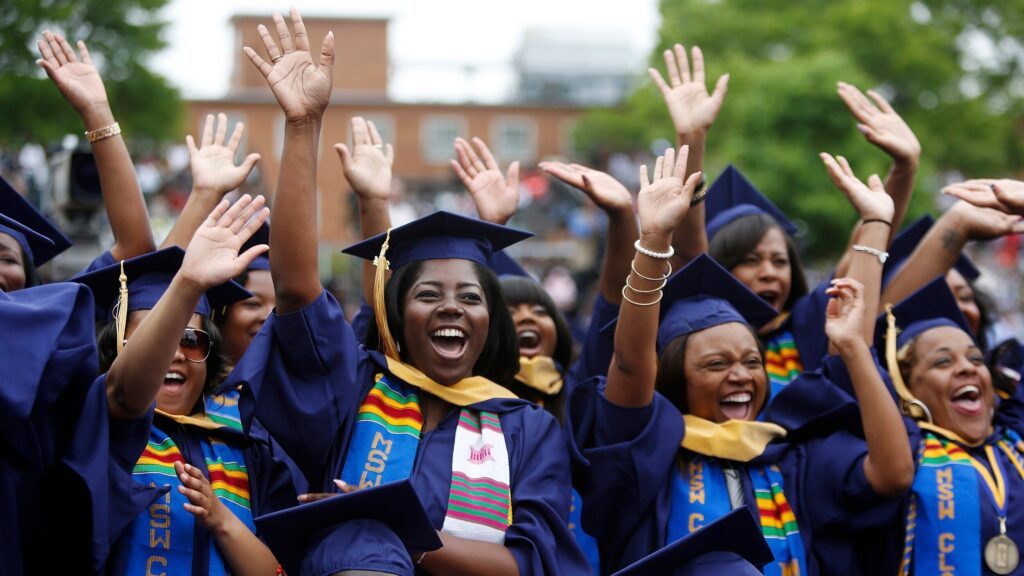Teachers, social workers and other public servants among those to benefit
By Charlene Crowell
Teachers, social workers, and other public servants are among those expected to benefit from recent Biden Administration efforts to expand eligibility for federal student loan forgiveness.
Collectively, these borrowers will be relieved of $4.9 billion debt in return for their service to communities that earned them forgiveness under Public Service Loan Forgiveness (PSLF) and Income-Driven Repayment (IDR).
“The Biden-Harris Administration has worked relentlessly to fix our country’s broken student loan system and address the needless hurdles and administrative inaccuracies that, in the past, kept borrowers from getting the student debt forgiveness they deserved,” said U.S. Secretary of Education Miguel Cardona.
James Kvaal, U.S. Under Secretary of Education added, “The Biden-Harris Administration is not going to stop until we’ve helped all of those harmed by the broken student loan system.”
Announced by the federal Department of Education in January, this latest expansion boosts the Biden Administration’ s total student loan forgiveness to $136.6 billion for more than 3.7 million borrowers. Here’s how this unprecedented loan relief was accomplished:
• $56.7 billion for 793,400 borrowers enrolled in PSLF since October 2021. Prior to the Biden-Harris Administration’s fixes to PSLF, only about 7,000 borrowers had ever received forgiveness;
• $45.7 billion in IDR relief for 930,500 borrowers;
• $11.7 billion for almost 513,000 borrowers with a total and permanent disability; and
• $22.5 billion for more than 1.3 million borrowers who were cheated by their schools, saw their institutions precipitously close, or are covered by related court settlements.
In late 2023, the Federal Reserve determined that although most consumers pay $400 or less in monthly loan payments, 19 percent of borrowers pay far more. As reported by Motley Fool, payments between $500 and $999 are made by 14 percent of borrowers, while payments of $1,000 or more are paid by five percent of borrowers.
“Outstanding student loan debt exceeds outstanding auto loan debt and credit card debt,” recently noted Rohit Chopra, Director of the Consumer Financial Protection Bureau (CFPB). “If student loan borrowers are unable to successfully enroll in payment plans or obtain accurate information about their accounts, this can have a domino effect on the rest of their financial lives.”
In December 2023, CFPB issued a new report entitled, Making Ends Meet in 2023. Two findings in this report highlight the heavy and disproportionate financial effects for borrowers of color:
“Consumers who currently have student debt were 10 percentage points more likely to have difficulty paying bills than consumers who had student debt at some point in the last 10 years but no longer do and consumers who have not had student debt for at least 10 years if ever.”
“Nearly 58 percent of Black consumers and 54 percent of Hispanic households could not cover expenses for more than a month in February 2023,” continued the CFPB report, “while this was the case for only 34 percent of non-Hispanic white households and 32 percent of households of another race. These differences among groups were largely unchanged since 2022.”
Secretary Cardona said the Education Department’s Saving on a Valuable Education (SAVE) Plan will deliver even greater debt relief and help put more borrowers on a faster track to loan forgiveness. Borrowers who originally took out $12,000 or less for college and are enrolled in the SAVE Plan will see forgiveness after as few as 10 years of payments. Those who are enrolled in SAVE and are eligible for early forgiveness will have their debts automatically cancelled starting next month, months ahead of schedule, with no action needed.
The Department and its partners are reaching out to encourage eligible but unenrolled borrowers to sign up for SAVE. Borrowers can find additional resources at StudentAid.gov and sign up for the SAVE plan at StudentAid.gov/save.
Charlene Crowell is a senior fellow with the Center for Responsible Lending. She can be reached at Charlene.crowell@responsiblelending.org.
Credit: Source link




